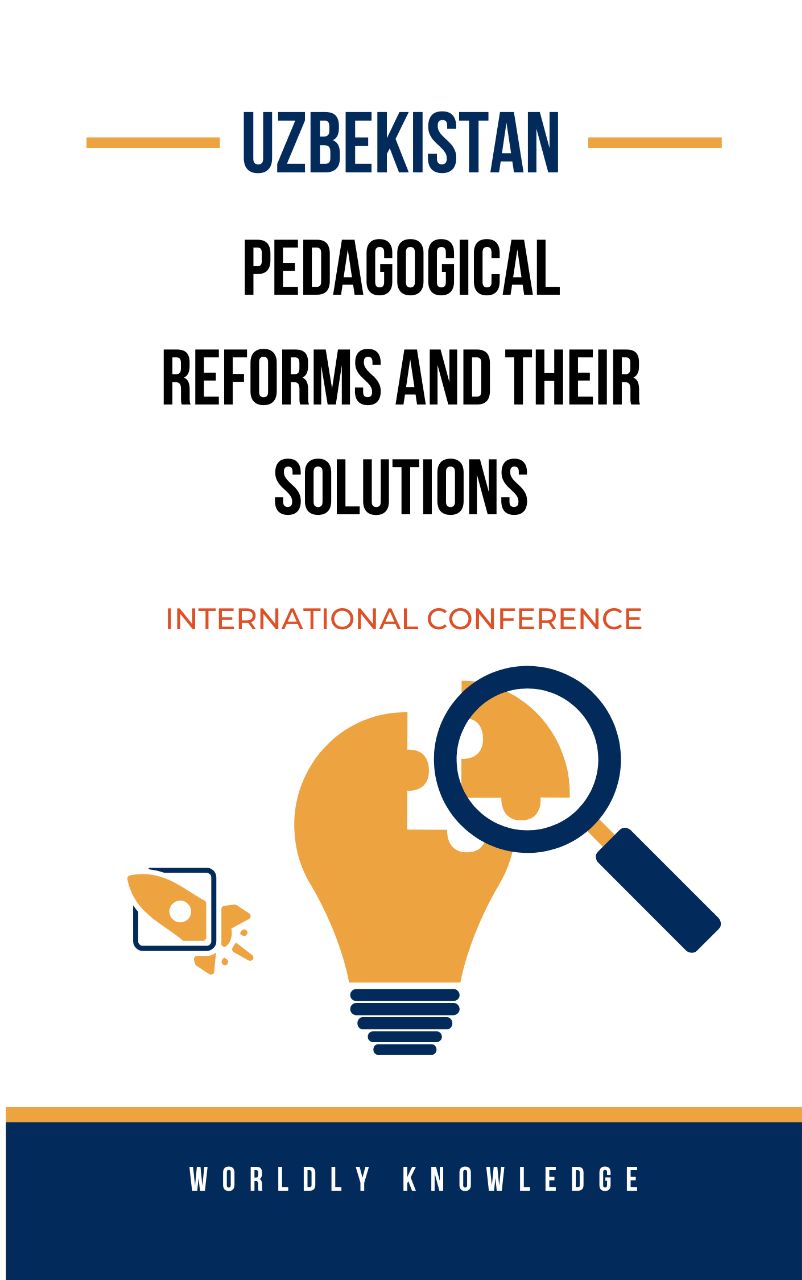METHODS OF TEACHING ELEMENTARY SCHOOL STUDENTS TO THINK LOGICALLY
Keywords:
logical thinking, critical thinking, problem-solving, elementary education, puzzles, cause-and-effec, pattern recognition, interactive learning, problem-solve, critical thinking, classroom environment, teacher pedagogy, early educationAbstract
Teaching logical thinking to elementary students lays the foundation for critical thinking and problem-solving skills that will benefit them throughout their lives. Logical thinking helps students analyze situations, make informed decisions, and approach problems systematically. The process involves engaging students in activities that encourage them to recognize patterns, evaluate outcomes, and reason methodically. Methods such as using puzzles, sorting exercises, cause-and-effect discussions, and storytelling can help children practice these skills in a fun, interactive way. Visual aids, games, and real-world examples are also effective in reinforcing logical thinking concepts. By creating a structured yet playful learning environment, educators can foster an early appreciation for logic and problem-solving in young learners.
References
1.Shavkatjonovna T. N. A Creative Approach to Teaching Geometry in the PrimaryGrades//International Journal on Orange Technologies. – 2021. – Т. 3. – №. 9. – С. 48-53.
2.Ziyaqulova M., Ashurova S., Toshpulatova N. BOSHLANG’ICHSINFO’QUVCHILARINING AQLIY SALOHIYATINI HAMDAKREATIVLIGINIOSHIRISHDA MENTAL ARIFMETIKANING O'RNI //Development and innovationsinscience. – 2023. – Т. 2. – №. 3. – С. 92-98.
3.Niyohon T. THE WORLD OF SCIENCE IN PRIMARYCLASSSTUDENTSIMPROVING THE INTERDISCIPLINARY FORMATION OF VIEW//International Journalof Pedagogics. – 2023. – Т. 3. – №. 05. – С. 113-120.
4.Toshpulatova N., Almanova D. THE CONTENT AND TASKS OFTEACHINGMOTHER TONGUE AND READING LITERACY TO PRIMARYSCHOOLSTUDENTS
5.Marufjonova R. L. RESEARCH ACTIVITIES IN PRESCHOOL CHILDREN //Экономика и социум. – 2021. – №. 12-1 (91). – С. 341-344.
6.Marufjonova R. METHODOLOGY FOR DEVELOPMENT OF RESEARCH ACTIVITY IN CHILDREN OF PRESCHOOL AGE (6-7 YEARS OLD) //Academia Repository. – 2023. – Т. 4. – №. 11. – С. 32-38.
7.qizi Ma’rufjonova R. L. SOCIAL PSYCHOLOGICAL ASPECTS OF DEVELOPMENT OF RESEARCH ACTIVITY IN PRESCHOOL CHILDREN //World of Scientific news in Science. – 2023. – Т. 1. – №. 1. – С. 38-47.
8.Rahila M. BUILDING STUDENTS'SCIENTIFIC RESEARCH SKILLS BASED ON THE VITAGEN APPROACH //Academia Repository. – 2024. – Т. 5. – №. 2. – С. 136-141.
9.Choriyevna C. S. Ways to Develop Mental Abilities in Preschool Children //Eurasian Journal of Learning and Academic Teaching. – 2022. – Т. 15. – С. 174-177.
10.Choriyeva S. C. TALABALARNI TA’LIMIY QADRIYATLAR ASOSIDA PEDAGOGIK FAOLIYATGA TAYYORLASHNI RIVOJLANTIRISH TIZIMI //Educational Research in Universal Sciences. – 2023. – Т. 2. – №. 4 SPECIAL. – С. 1177-1181.
11.Choriyevna C. S. et al. A MODEL FOR IMPROVING THE SYSTEM OF PREPARING STUDENTS FOR PEDAGOGICAL ACTIVITY ON THE BASE OF EDUCATIONAL VALUES //Multidisciplinary Journal of Science and Technology. – 2023. – Т. 3. – №. 6 (INTERNATIONAL SCIENTIFIC RESEARCHER). – С. 283-285.
12.Choriyevna C. S. Main Directions of Teacher Training and Improving Their Quality for the Preschool Education System //Vital Annex: International Journal of Novel Research in Advanced Sciences. – 2022. – Т. 1. – №. 5. – С. 51-54.
13.Чориева С. Ч., Шамсиддинова Д. Б. Приоритеты Системы Образования В Республике Узбекистан //International Journal of Formal Education. – 2023. – Т. 2. – №. 11. – С. 240-245.

